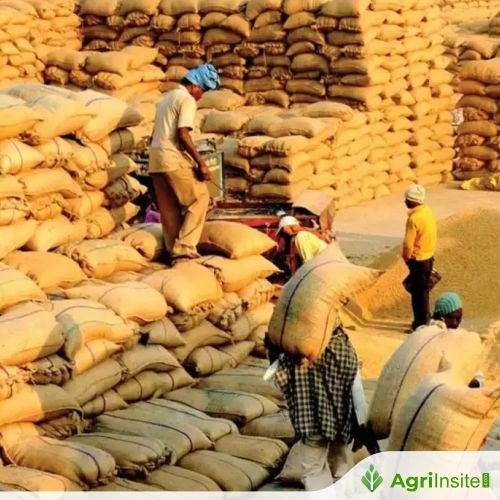A rebalancing of wheat procurement

India’s wheat procurement is becoming more equitable, with non-traditional states like Madhya Pradesh, Rajasthan, and Uttar Pradesh showing significant increases. This marks a shift from the historical dominance of Punjab and Haryana. Broader procurement benefits more farmers, reduces regional disparities, and enhances income security. Continued infrastructure development and policy support are essential to sustain this positive trend.
India’s wheat procurement dynamics are witnessing a crucial shift in the rabi marketing season 2025-26. As of May 15, wheat procurement has increased by 14.4 per cent compared to the previous year’s procurement of 25.76 million tonnes (mt). However, the most telling aspect of this rise is the changing geography of procurement. While procurement in traditional States like Punjab and Haryana has declined by 3.4 per cent and 0.3 per cent respectively, other States have seen a substantial surge. Madhya Pradesh recorded an astonishing 69.4 per cent rise, followed by Rajasthan at 95.6 per cent and Uttar Pradesh at 16 per cent. Does it mean that equity in wheat procurement is beginning to take shape?
This shift marks a potential rebalancing of India’s wheat procurement policy, long dominated by a few States. Historically, Punjab and Haryana together contributed a lion’s share of the wheat procured by the Food Corporation of India (FCI) under the Minimum Support Price (MSP) regime. In 2023-24, Punjab alone accounted for over 46 per cent of the total wheat procurement, with Haryana contributing around 24 per cent. This meant that nearly 70 per cent of the national procurement came from just two States. In other words, out of 21.34 lakh farmers who benefited from MSP-based procurement at the India level, these two States alone accounted for 59 per cent.
Such concentration brought disproportionate benefits to farmers in these regions. The assured procurement under MSP led to greater investment in wheat farming, improved infrastructure such as mandis and logistics chains and a dependable income source for local farmers. On the other hand, despite being major wheat producers, States like Uttar Pradesh, Madhya Pradesh and Rajasthan witnessed much lower procurement levels (see Figure). Many farmers in these States were forced to sell their produce in open markets, often below the MSP, due to limited government procurement.
To Read more about Wheat News continue reading Agriinsite.com
Source : The Hindu Business line















